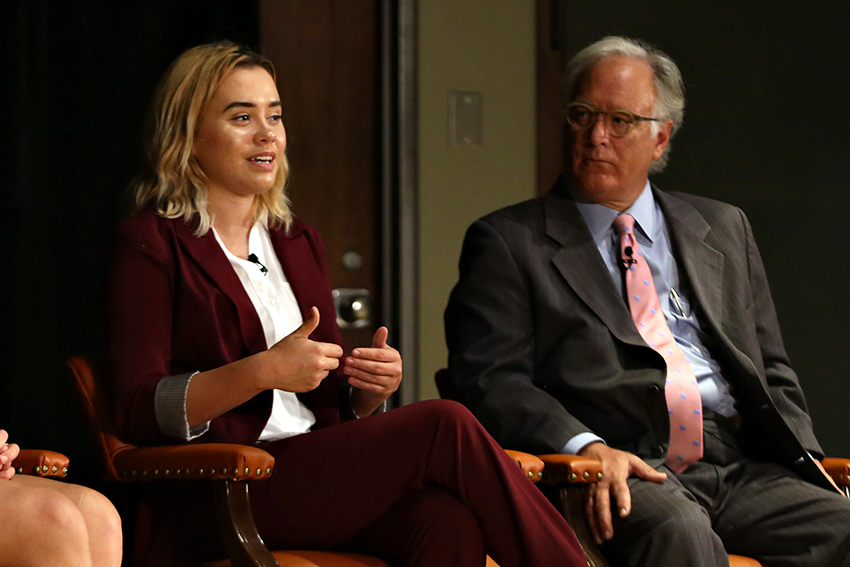U.S. Education Secretary Betsy DeVos’ recent amendments to Title IX sexual assault guidelines left one Texas Tribune Festival panel with a lot to consider.
The Saturday panel — made up of lawmakers, a reporter, a UT System official and a sexual assault survivor — discussed how recent federal level policy shifts may impact how colleges approach sexual assault cases and how Texas can learn from Baylor University’s sexual assault scandal.
ESPN reporter Paula Lavigne covered the Baylor scandal and has reported on issues of sexual assault at other colleges.
Lavigne, a panelist, said concerns over the Title IX changes are valid, but that students and the public will continue to hold universities accountable.
“What happened at Baylor was so unprecedented … that universities were put on notice,” Lavigne said. “Despite what the policies are, the pressure from the public and the pressure from the students is not going away.”
DeVos reversed an Obama-era Title IX guideline on Friday that required colleges and universities to use the lowest evidentiary standard, “more likely than not,” when evaluating sexual assault cases.
Under the new guidelines, schools are able to use the “clear and convincing” evidence standard in deciding whether a student is responsible for sexual assault. DeVos also removed a deadline for completing sexual assault investigations within 60 days.
In response to these changes, a number of universities have publicly committed to uphold the standards introduced in the 2011 “Dear Colleague” letter and under Obama’s 2014 guidance.
Baylor University junior Sierra Smith, a sexual assault survivor, said the new guidelines will deter students from reporting incidents of sexual assault and Title IX violations. Smith said the new guidelines are not fair to survivors, who already have a hard enough time coming forward.
The panel went on to discuss the consequences of some university disciplinary practices, such as students transferring schools to avoid disciplinary proceedings.
In Smith’s case, Baylor found her assailant responsible. But by the time that decision was made, he had already transferred to another school. Smith’s assailant was supposed to receive multiple semesters of suspension, but continued his education at another school free from any repercussions.
“It’s not fair,” Smith said. “If you do something wrong and you’re found guilty and there’s a punishment that comes with it, you should have to serve your punishment.”
In the 85th Legislature, Smith testified in favor of a bill that would impose a statewide rule requiring disciplinary notations. The bill failed to pass.
Wanda Mercer, associate vice chancellor for student affairs for the UT System, helped UT-Austin create a policy that includes a notation of a disciplinary case on student transcripts so future schools will know to ask questions before they admit a student.
Mercer said UT and many other institutions proceed with investigations even if someone leaves the school in the middle of the process. If the process is not finished, some universities may hold student transcripts until the process is complete.
“If the person who’s accused withdrawals or transfers or leaves, you proceed with the process,” Mercer said. “You continue, you have the hearings … you have evidence and you make a ruling. And that ruling stands. We cannot have people bowing out of an institution to avoid the sanctions which should have been applied.”




















